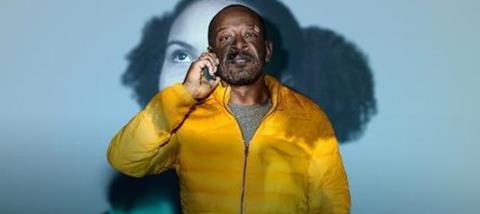
The shocking truth about human trafficking in Britain today has been much in the news recently, but it is also a growing topic in fiction and entertainment.
The latest example of this is the critically acclaimed Sky Atlantic drama, Save Me. The show is written by and stars Nottingham-born Lennie James (best known for his role as Morgan in The Walking Dead). It has gripped viewers and the finale airs tonight.
Save Me tackles one of the most extreme forms of trafficking, linked to abduction and the sex trade.
James plays a desperate father, attempting to track down his estranged daughter, Jody (Indeyarna Donaldson-Holness) – but he is then himself arrested and accused of abducting her. Suranne Jones plays Jody’s distraught mother, Claire.
The plot starts off dark and get even more harrowing as it goes – made worse as you remember that the disgusting and barbaric crime of sex trafficking is an all-too-real phenomenon.
It really is a form of modern slavery, and there are more people trapped in slavery today than at any point in human history. It is thought to be the third-largest criminal enterprise in the world.
The best estimates from the UN suggest there are 24.9 million people living in modern slavery around the world, trapped in forced labour, domestic servitude or forced sexual exploitation. A further 15 million are living in a forced marriage, experiencing a combination of all three main forms of modern slavery.
There are tens of thousands of victims in the UK alone, according to the National Crime Agency.
At Hope for Justice we work directly with victims of trafficking who have been tricked or forced into these situations and kept there through violence, fraud or coercion, and often end up living and working in abominable conditions.
The first victim we rescued, nearly a decade ago, was 19 and had spent five years trafficked throughout Europe’s sex industry. Forced to work in brothels where men had three to five minutes of her time. She was someone’s daughter, raped for profit. She kept a diary but instead of filling it with hopes and dreams like other teenage girls she kept count of how many men she was forced to service each day.
One day she wrote down the number 117.
Even after the rescue, she struggled to trust us at first, telling our team: “You don’t know how it feels. To be abused so badly you can’t even walk. You don’t know what it feels like to be beaten and raped for years and years. I’ll never cry about this. Every day and night I was forced to sleep with fat, old, sweaty men; dribbling and drooling all over me. I have no-one in my life that’s there for me. Do you know how bad that is?”
But we stayed with her, helping her with advocacy and specialist support that helped her into a new life in freedom, with opportunity and hope.
She was the first survivor, but today we are proud to have rescued hundreds more like her: women and men, girls and boys.
We are determined to see an end to modern slavery, and to help victims no matter where they come from. We now work across four continents, bringing an end to modern slavery by rescuing victims, restoring lives and reforming society. We also work with vulnerable children and teenagers to reduce their vulnerability to predatory traffickers – more than 33,000 children last year alone.
Awareness leads to action, so here are some signs to look out for in your community:
- People unable to travel freely e.g. picked up and dropped off at a business or residential address by another person
- Lights on at night at workplaces where you would not usually expect this, suggesting people might be living there
- Money for services collected by another person, especially if they also talk (or interpret) on their behalf
- People looking malnourished, confused, scared etc
- People exhibiting signs of physical and psychological trauma e.g. anxiety, lack of memory of recent events, bruising, untreated conditions
- Be doing work connected to a debt, or do not have access to their own documents
If you see something that does not look right, find out how to report it at hopeforjustice.org/concern, where you can also download free educational and printable resources. If someone is in immediate danger, call the police.
Adam Hewitt is Communications Manager at Hope for Justice
Click here for a free sample copy of Premier Christianity magazine




























